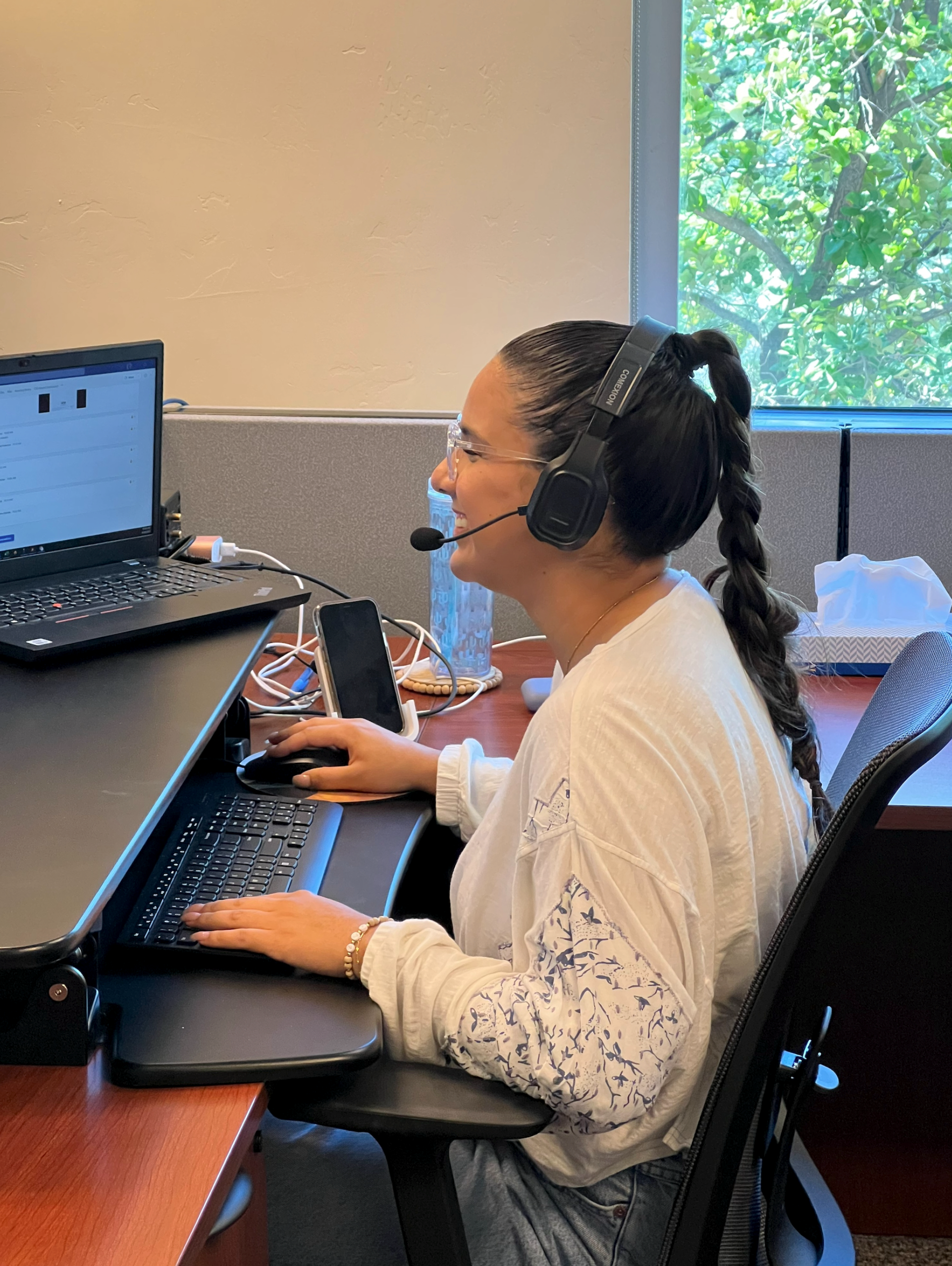Often Tested, Exam Day Help Desk has the Answers
2023;16(1):10
By Heather Hopkins, ABR Communications Coordinator

When the ABR switched from in-person to remote exams, we endeavored not only to make the exams secure and reliable, but also to create a positive experience for candidates.
Staff from almost every department have played a role in achieving this goal: IT designed user-friendly exam platforms, Exam Delivery and Communications created exam guides and videos, Special Projects Administrators conducted technical checks, and the Certification Services Division (CSD) made phone calls. It has been a team effort to make sure candidates are prepared to have a successful exam day.
But regardless of how much information is sent or training provided, when exam day rolls around, some candidates may have issues. When they do, they can turn to the Exam Day Help Desk (EDHD).
The EDHD is a complex operation that involves a large and varied group of ABR staff and is constantly evolving. Debriefings after each exam administration have helped us to improve the level of customer service offered to candidates and make the system for keeping track of candidate interactions more efficient.
“Every time we’ve given an exam, in the after meeting, we discuss what the problems were and what we can do better,” CSD Associate Director Tina Henson said.
On exam day, the first level of support comes from certification managers and others who answer the phones. A candidate’s problem is often resolved in that first interaction.
“As time goes on, the CSD staff are becoming really technologically savvy,” Exam Services Associate Director Lydia Warg said. “They can troubleshoot a whole bunch of issues before we ever send a call to SysOps.”
If a candidate needs more in-depth technical support, a ticket is created on a board specifically designed for tracking issues during an exam. SysOps will then take over, helping candidates who are having difficulty getting into the exam at the start of the day or getting back in after an internet disconnection.
Other tickets are created for candidates who haven’t logged in at their assigned start time and those who need to have time added back to their exam and/or have questions unlocked. In addition to CSD and SysOps, Exam Delivery staff watch the board and pick up tickets as needed.
In most cases, candidates with technical issues are helped and returned to their exam within five to 10 minutes. If a caller has a complicated issue, such as not being able to find a location with a reliable internet connection or needing more than 30 minutes added to their exam time, the call is escalated to Tina, Lydia, or CSD Manager Kinsey SmithWright.
Kinsey oversees the “queue,” watching to see how many calls are coming in and making sure there are enough agents to answer them in a timely manner. This involves monitoring breaks, workflow, and tickets, and calling more people to join the queue if help is needed. Kinsey also does a lot of the prep before exam day.
“Getting everyone organized ahead of time really cuts the stress,” she said. “We’ve definitely upped our customer service game from the very beginning in how we prepare the people who are going to be on the phones, the systems we use to provide timely service, and the types of service we can provide.”
In response to common issues candidates have experienced, modifications have been made to the exam software, the information sent before exams, the Exam Readiness Check (for computer-based exams), and the self-led technical checks (for oral exams). These changes have led to a decrease in calls.
Another change has been the replacement of a third-party proctoring service with an in-house Remote Proctoring System (RPS) for computer-based exams. In addition to remediating the difficulties candidates have getting into the system at the start of an exam day, RPS allows staff to see and fix problems during an exam, such as a malfunctioning or poorly placed webcam.
The staff role in the exam process has changed greatly over the past 10 years. We no longer go to Louisville or Tucson for the oral exams or exam centers in Tucson and Chicago for computer-based administrations. But the objective has stayed the same: provide secure, reliable exams while minimizing inconvenience and stress for candidates.


